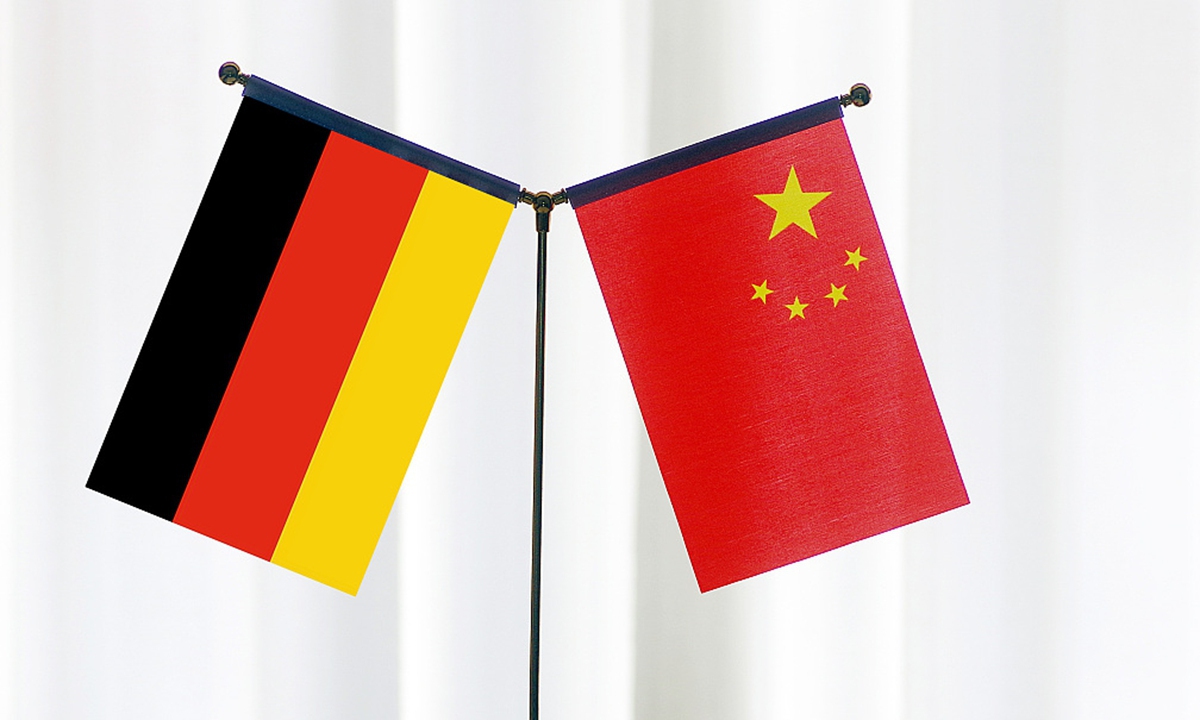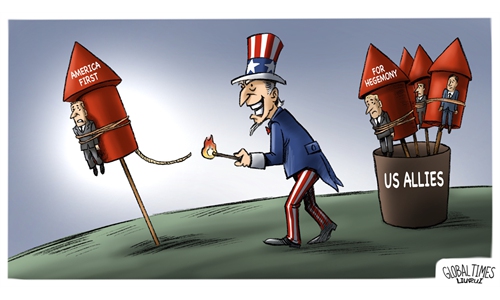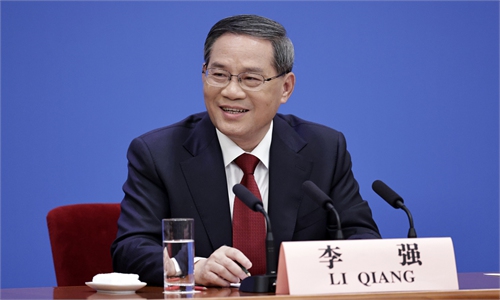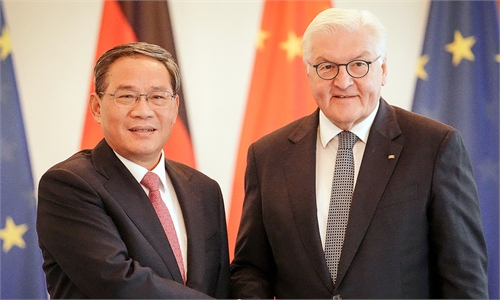GT Voice: Cooperation fundamentals for China, Germany still prevail despite political interference

Photo:VCG
Despite recent political warnings in Berlin about excessive dependence on China, the fundamentals of the mutually beneficial cooperation between the two sides will not change just because of the selfish will of some politicians.At the invitation of German Chancellor Olaf Scholz, Chinese Premier Li Qiang started an official visit to Germany on Sunday.
At a time when economies of both countries are facing challenges, how to deepen economic and trade cooperation between the two sides appears to be one of the major themes of Li's first overseas visit since he became Chinese premier.
On Monday, Li met with German President Frank-Walter Steinmeier and stressed that China values Germany's role and stands ready to work with Germany to uphold peace, development and cooperation, play a constructive role in contributing to global stability and prosperity, and provide more certainty to a volatile world.
Li is also scheduled to chair the seventh China-Germany inter-governmental consultation together with German Chancellor Olaf Scholz, attend the China-Germany Economic and Technical Cooperation Forum and a round table for Chinese and German entrepreneurs, meet with representatives from German industrial and business communities, and visit Germany companies in Bavaria.
In general, the arrangement first sent a clear signal that China still attaches great importance to cooperation with Germany and has the sincere willingness to continue the practical cooperation in the future.
The pursuit of win-win cooperation still has a solid foundation. For Germany, close economic ties with China means colossal production capacity and market support for future economic growth, while for China, cooperation with Germany is conducive to the upgrading of advanced technology and industries.
In 2022, trade between China and Germany reached 298 billion euros ($320 billion), up 21 percent year-on-year and marking a new record, according to data from the German statistics office. China has become Germany's most important trading partner for the seventh year in a row.
It is important to note that both economies have their own challenges. Germany has entered a technical recession with data showing that the economy contracted in the first quarter of this year, while China's export growth is slowing amid the sluggish global demand and the US-led "decoupling" push. Under the severe circumstances, it is an objective need for both sides to boost their economic development by strengthening cooperation.
In fact, there is no reason to lose faith in China-Germany cooperation as German companies are increasing investment in China, according to latest data from the German Economic Institute IW. Commercial investment is the result of both market rules and business decisions, which is also a microcosm of the trust and confidence of German businesses in China that there is still room for bilateral cooperation to grow.
It is, of course, undeniable that certain negative changes have taken place in bilateral economic and trade relations, and a brake must be put on such changes. German exports to China in the first quarter of this year fell 12 percent year-on-year, while German imports of Chinese goods contracted 9.7 percent year-on-year during the same period.
The main reason for the negative changes is not entirely from the economic realm. The most disturbing factor in the cooperation between the two countries is from the political level. In other words, the EU's political atmosphere toward China has dampened the cooperation momentum as some politicians are playing up "national security" or "de-risking" when it comes to China cooperation. The case of a Chinese company's acquisition of a stake in the Hamburg port is a typical example of the political scrutiny over any Chinese deal. In this sense, how to reduce the ideological interference for China-Germany cooperation is a problem Berlin needs to overcome.
Last but not least, it is true that there is competition between China and Germany in terms of manufacturing sector, but the two sides can still benefit from closer cooperation amid the competition. While China remains the world's largest manufacturer, beating Germany in term of output, they still have strong complementarities on many levels. For instance, China's expanding middle class has formed a huge and still growing market, which can be a large pool of potential customers that German carmakers cannot find elsewhere.
Another important aspect of China-Germany cooperation is that, as manufacturing powers, we have important responsibility to jointly maintain global industrial and supply chains. This is not only in the interests of both countries, but also in the interests of the EU and global development.



